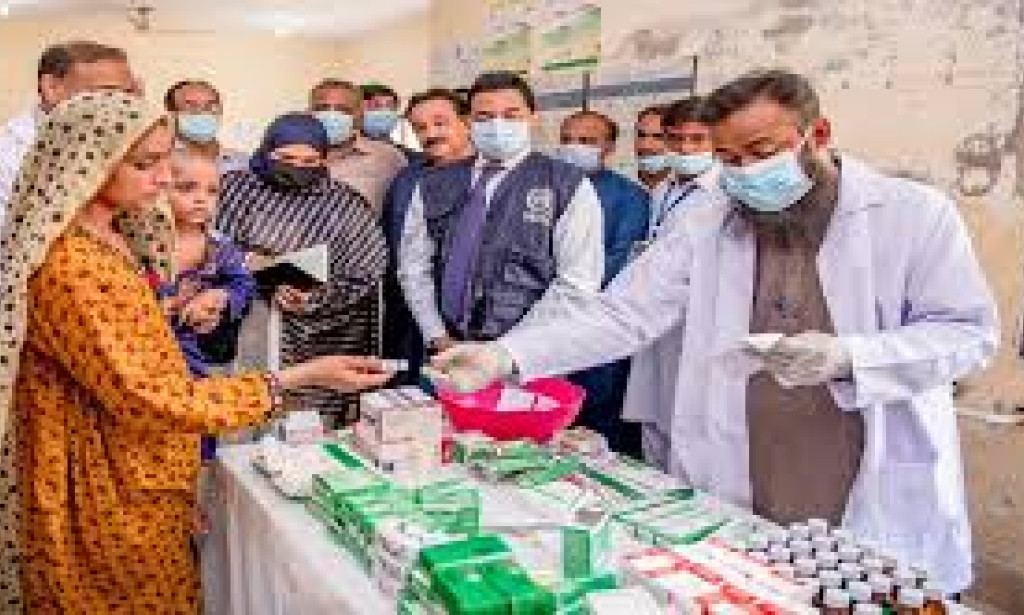Healthcare Challenges in Pakistan: A Struggle for Quality and Accessibility
Pakistan, the world’s fifth most populous country, faces numerous challenges in its healthcare system. Despite some progress, issues such as inadequate healthcare infrastructure, lack of access to quality medical services, and a growing burden of diseases continue to affect millions. The government and private sector are making efforts to improve healthcare, but a lot remains to be done. This article explores the major health issues in Pakistan, the challenges faced by the healthcare system, and potential solutions.

Major Health Issues in Pakistan
Pakistan is dealing with a dual burden of diseases: communicable diseases (such as tuberculosis, hepatitis, and dengue fever) and non-communicable diseases (such as diabetes, heart disease, and cancer).
1. Infectious Diseases: Diseases like hepatitis B and C are widespread due to poor hygiene, unsafe medical practices, and lack of awareness. Dengue fever outbreaks occur frequently, especially in urban areas due to poor sanitation and stagnant water. Tuberculosis remains a serious problem, with Pakistan being one of the top countries affected by TB.
2. Maternal and Child Health: Pakistan has one of the highest maternal and infant mortality rates in the world. Many women do not have access to proper prenatal and postnatal care, and a significant number of births take place at home without trained medical professionals. Malnutrition among children is also a major concern, leading to stunted growth and poor cognitive development.

3. Non-Communicable Diseases (NCDs): Heart disease, diabetes, and cancer are on the rise due to unhealthy lifestyles, poor diet, and lack of physical activity. The increasing use of tobacco and the consumption of unhealthy processed foods are contributing to the growing burden of NCDs.
4. Mental Health Issues: Mental health remains a neglected area in Pakistan. Depression, anxiety, and stress-related disorders are common, but there is little awareness or support available. The stigma surrounding mental health prevents many from seeking treatment.
Challenges in the Healthcare System
Despite having a mix of public and private healthcare facilities, Pakistan’s healthcare system faces several challenges:
1. Lack of Infrastructure and Resources: Many hospitals and clinics lack basic facilities, especially in rural areas. There is a shortage of doctors, nurses, and medical equipment.
2. Expensive Healthcare: While government hospitals provide free or low-cost treatment, they are often overcrowded and lack proper facilities. Private hospitals offer better services but are too expensive for most Pakistanis.
3. Low Government Spending: Pakistan spends less than 2% of its GDP on healthcare, which is far below the recommended level. As a result, public hospitals struggle to provide adequate services.
4. Lack of Awareness: Many people do not have basic knowledge about hygiene, nutrition, and disease prevention, leading to widespread health problems.

Solutions and Recommendations
- Increase Healthcare Budget: The government should allocate more funds to improve healthcare infrastructure and services.
- Strengthen Primary Healthcare: More focus should be given to rural healthcare centers to provide basic medical facilities to people in remote areas.
- Awareness Campaigns: Public health campaigns on hygiene, nutrition, and disease prevention can help reduce health issues.
- Mental Health Support: More investment in mental health services and reducing stigma around mental health issues.
Improving healthcare in Pakistan requires a combined effort from the government, private sector, and society. With better policies, investment, and awareness, Pakistan can provide better healthcare for its people.




You must be logged in to post a comment.